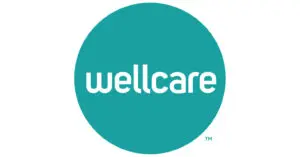About Medicare
Medicare is a federally administered health insurance program for people over the age of 65, those under 65 with certain disabilities, and people of all ages with End-Stage Renal Disease. Medicare is paid for through payroll taxes on working Americans, as well as premiums from its members that are based on the type of coverage they have.
Anticipating what you need and knowing your options are critical to getting the affordable care you need to stay healthy. Consider the following before investigating your options:
First, self-reflect and examine your current medical situation. If you’re managing a chronic condition and/or taking brand-name drugs, your needs will vary greatly from someone who just wants to carry hospital coverage in case of an emergency.
- Think about the types of doctors you see, how often you see them, and where they are located. If they’re not in your plan’s network, you’ll pay more (possibly 100%) to see them.
- Consider the types of prescriptions you take and where you fill them. If you take brand-name drugs, you’ll likely benefit from having Part D coverage. Find out if your plan has a preferred pharmacy and/or mail-order program— using these options can offer savings.
- Try to anticipate potential future needs like medical supplies, surgeries, or nursing home care.
- Some plans only cover you while you’re in certain areas of the country or home state. If you spend significant time away from home, you will want a policy that covers you both at home and while you travel.
- Plans change every year. If there are aspects of your plan that you depend on, be sure they’ll still be available. And if your plan doesn’t change, it’s still worth looking at other options to make sure you’re getting the most for your money.
Second, know your options. Do you need hospital coverage (Part A), healthcare services (Part B), prescription drugs (Part D), or all of the above (Part C, otherwise known as Medicare Advantage)? You can go with Original Medicare (Part A, Part B, or both), Original Medicare plus Part D, or Medicare Advantage (Part C). You can also get a Medicare Advantage Special Needs Plan (SNP) or Supplement Insurance Plan to help with the costs Original Medicare doesn’t cover. Ultimately, the choice is yours.
Medicare Supplements
Medicare provides comprehensive health care insurance coverage, including prescription drugs. Many private insurers offer Medicare supplement plans to cover the costs that are not covered under the Medicare program, and these plans are heavily regulated in the state of Colorado. Supplements A and B only are offered by medicare.gov.
Medicare Providers
Contact Lori Fennessey today or call (970) 390-3706 with assistance in finding the medicare program that’s right for you.
![]()




